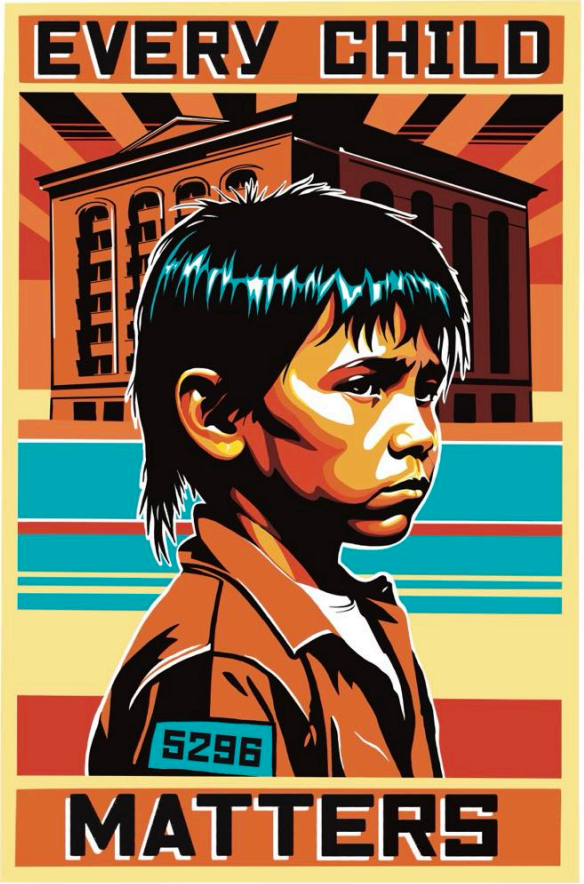Native Americans Experience Intergenerational and Historical Trauma


The Resilient Roots of Native Americans: Historical and Intergenerational Trauma Most of us have heard of trauma, but are you aware of historical trauma and intergenerational trauma?
Did you know it was possible to inherit some of your great-great-great grandparent’s trauma responses? It is possible. “From a Native American point of view, historical trauma has been described as a soul wound because it is experienced as a wounding down to the level of being.” (Duran E. Healing the Soul Wound: Counseling with American Indians and Other Native Peoples. Teachers College Press; 2006.)
First of all, what is trauma? Trauma is a person’s emotional response to a catastrophic event in their lives, such as sexual assault, a car accident, being robbed, or experiencing a natural disaster. When experiencing stress, our bodies and minds work overtime to understand what is happening to us. Our body’s reaction to stress engages the flight, fight, or freeze response. Responses to trauma can be long-lasting and detrimental to a person’s health and well-being. Reminders of the incident can trigger post-traumatic stress, as the body cannot process the emotions and feelings during the actual event. Therefore, the aftereffects can be just as detrimental as the initial incident.
Some typical responses to trauma are:
Nightmares
Flashbacks
Intrusive thoughts
Lack of sleep
Anxiety
Avoidance of people, places, or objects that remind one of the trauma
Hypervigilance, always looking out for danger
Easily startled or “jumpy”
Changes in self-esteem, believing you are “bad,” or feeling guilt or shame
Easily overwhelmed or lack of patience
There are two more forms of trauma to understand, which may give some insight into the issues that have plagued Native Americans for centuries.
Historical trauma can best be defined as “trauma experienced by a specific cultural group that has a history of being systematically oppressed. The term “historical trauma,” first introduced by Dr-Maria-Yellow-Horse-Brave-Heart, is described as a “cumulative emotional and psychological wounding” from massive group trauma across generations.” Some examples of historical trauma include slavery, forced assimilation, attempted genocide, and other notable historical travesties. The effects of historical trauma come in many forms, such as substance abuse, intimate partner violence, lack of empathy and nurturing, depression, anxiety, suicide, and physical and emotional pain.
According to trauma advocates, generational trauma, also known as inter-generational trauma, occurs when a traumatic event affects an individual, family, or community and gets passed down to subsequent generations. Intergenerational trauma is a theory that trauma and its responses are passed genetically through our DNA for generations. For example, a person today may experience depression and anxiety and can’t exactly pinpoint why. This could be a genetic marker that resulted from a catastrophic event in his great-great-grandmother’s life that culminated in her traumatic responses that would affect her family for years to come. Intergenerational trauma responses can show up when one is angered or saddened when triggered by an emotional event.
The descendant of the once-traumatized family member may inflict self-harm or enact self-destructive behaviors, experience depression and anxiety, have survivor guilt, feel oppressed, or exhibit low self-esteem. Trauma is different for everyone. Not everyone experiences a tragic life event. Trauma can occur from being bullied or life changes such as a new job or moving to another town. Traumatic situations cause emotional wounds. Such wounds need attention, empathy, and care. Having compassion for trauma survivors helps the survivor feel understood and justified.
Native Americans have felt the intergenerational and historical trauma responses for many years, from forced relocation, attempted genocide, and, most recently, residential boarding schools. It is easy to see why so many of our people suffer in the aftermath of indescribable things that have happened in our past. But healing is possible. Native Americans are some of the most resilient people on Earth.
We rely heavily on our culture and traditions to maintain our connection to our ancestors’ teachings and ways. We have withstood some of the most horrific challenges in history, yet here we are, surviving and thriving. Researchers have found that treatment involving culturally relative concepts and practices has been helpful to Native Americans in beginning to feel connected to their culture again.
Practicing healing activities, attending counseling, partaking in ceremonies, and focusing on the positives may significantly impact your and your future family members' mental health. The ARC has several ‘Culture- The Key to Healing’ online and in-person events planned to assist in your healing journey. These events are designed to help relax the mind and embrace your culture. There are also several upcoming events designed to help heal our intergenerational traumas.
A Community Feast to Honor Residential Boarding School Attendees is on the agenda for September 30, 2024, at the Niigaanagiizhik Ceremonial Building. The ARC has advocates on hand to help those impacted by violence or sexual assault, followed by an event for Domestic Violence Awareness Month. Domestic violence is a direct result of historical and intergenerational traumas experienced in our past. Although violence is not our tradition, the cruel acts bestowed upon us have certainly taken their toll on our behaviors. Please contact the Advocacy Resource Center at 906-632-1808 for more information about our advocacy services.
You may also visit our website at www.arcsaulttribe.com Sources:
https://carlisleindian.dickinson.edu/teach/kill-indian-him-and-save-man-r-h-pratt-education-native-americans https://psychcentral.com/health/what-is-trauma#symptoms https://care-clinics.com/different-types-of-trauma-collective-historical-generational https://journalofethics.ama-assn.org/article/what-does-it-mean-heal-historical-trauma/2021-06